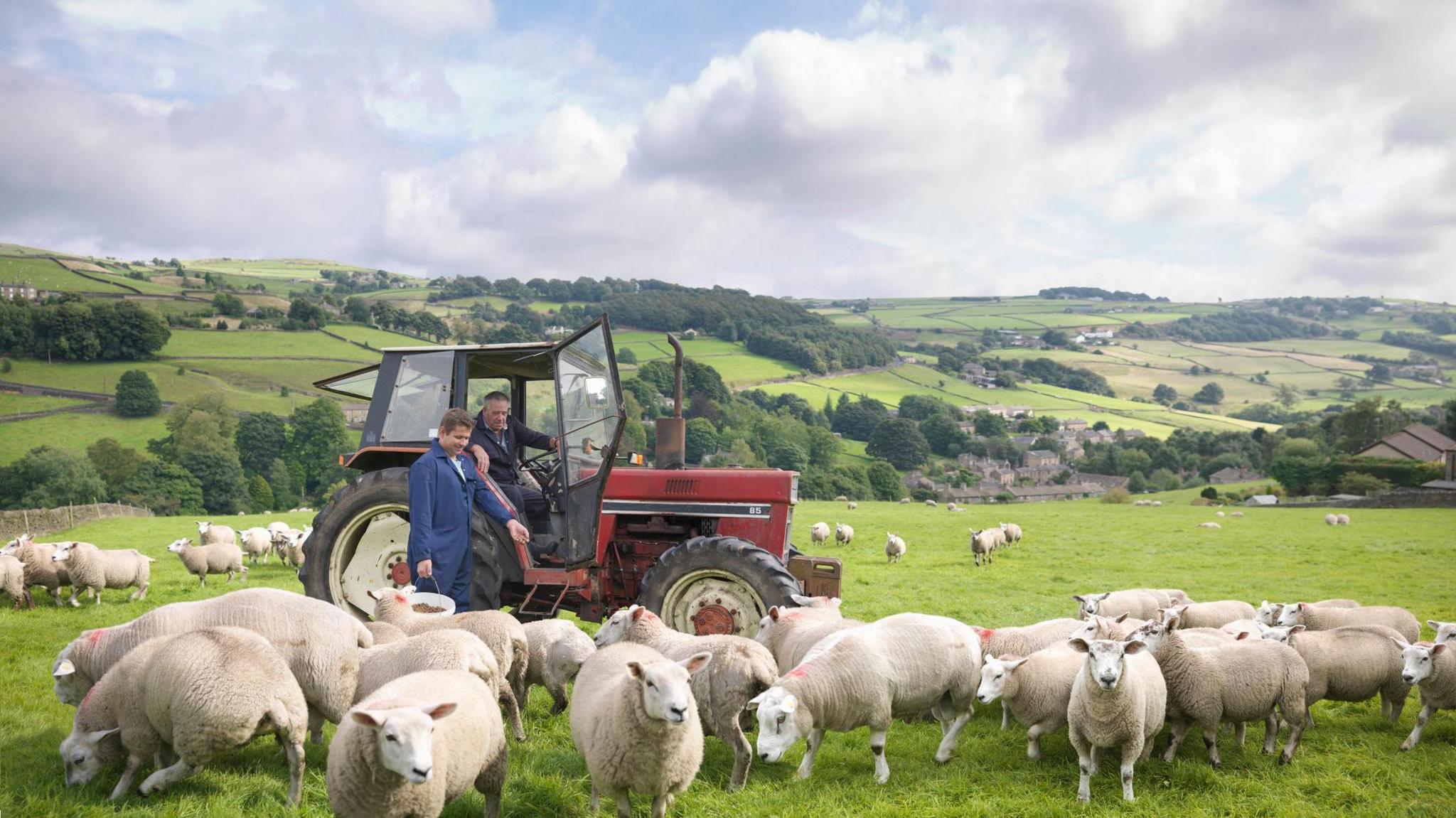Most farmers won't pay inheritance tax, PM insists

- Published
The "vast majority" of farmers will not be affected by the changes to inheritance tax (IHT) announced in the Budget, the prime minister has told MPs.
From April 2026, inherited agricultural assets worth more than £1m, which were previously exempt, will be liable to the tax at 20%, half the usual rate.
The National Farmers' Union (NFU) has called this “disastrous" for family farms, saying it will “snatch away the next generation’s ability to carry on producing British food” and see farmers forced to sell land to pay the tax.
Appearing at her first Prime Minister's Questions as opposition leader, Kemi Badenoch described it as a "cruel family farms tax" and vowed to reverse it.
She called on Sir Keir to "reassure the farming community".
Sir Keir said last week's Budget had put £5bn into farming over the next two years.
"That's the single biggest increase," he added, contrasting it with £300m he said had been underspent by the previous Tory government.
"When it comes to inheritance, the vast, vast majority of farmers will be unaffected, as she well knows; as they [the Conservatives] well know," he added.
The prime minister said Labour was "taking the country forward" by investing in it, while the Tories were “stuck in the past”.
Farmers protest against 'attack on rural economy'
- Published6 November 2024
Farmers 'betrayed' by £1m inheritance tax relief cap
- Published30 October 2024
How many farms will be affected by Budget tax rises?
- Published10 December 2024
Later during PMQs, Tory Sir Edward Leigh, the longest-serving MP in the Commons, urged Sir Keir, "as a good lawyer", to "listen to the evidence" if it showed smaller family farms of around 250 acres were going to be severely hit by the tax.
"In a spirit of compromise, will he listen to the evidence, keep an open mind and perhaps be prepared to raise the thresholds to preserve our family farms?" Sir Edward asked.
The prime minister replied that the government was listening to farmers, with ministers meeting the NFU on Monday, and was taking a "fair and balanced approach".
The “vast majority” of farms would not be affected, he repeated.
Pointing to the extra spending set out in the Budget, he added that he had grown up in a rural community, and knew that people in rural areas also needed “an NHS that is back on its feet… schools that their children can go to and homes that their families can afford to live in”.
Since it was introduced in 1984, agricultural property relief (APR), external has allowed small family farms – including land used for crops or rearing animals, as well as farm buildings, cottages and houses - to be exempt from inheritance tax.
Since the Budget, farmers have warned that getting rid of this IHT exemption will force many family farms out of business and decimate the countryside.
The government has said it remains committed to supporting farmers and "the vital role they play to feed our nation".
Chancellor Rachel Reeves has said in some cases, the APR threshold could in practice be about £3m, where other IHT allowances also apply.
Paul Johnson, director of independent think tank The Institute for Fiscal Studies, has said, external the changes "will affect a remarkably small number of some of the most valuable farms".
"[Farms are] still more generously treated, actually, than farms used to be in decades past."
The Treasury estimates that 500 estates per year, external including agricultural land will be affected by the APR changes.
About 50 farmers protested against the measures on Wednesday, outside the Northern Farming Conference in Hexham, Northumberland, which was addressed by rural affairs minister Daniel Zeichner.